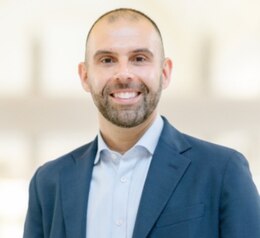Singapore Public Health & Nursing Leadership Conference
SPHC 2026
THEME: "Innovating for Tomorrow: Shaping the Future of Public Health"
 14-15 Sep 2026
14-15 Sep 2026  Singapore
Singapore THEME: "Innovating for Tomorrow: Shaping the Future of Public Health"
 14-15 Sep 2026
14-15 Sep 2026  Singapore
Singapore 
Yale, USA
Title: Shaping the Future: Global Health Financing Challenges and Their Impact on Health Inequities. The global health financing landscape faces mounting pressure due to donor fatigue, geopolitical instability, and increasing disease burdens. These shifts threaten progress in addressing health disparities,
Jirair Ratevosian is a global health policy expert and equity strategist. He has led major global health initiatives across government, academia, and multilateral platforms, including at PEPFAR and the U.S. Department of State. Now based at Duke and Yale, he advises on sustainable financing, AIdriven innovation, and inclusive governance. His work focuses on advancing equitable solutions to today’s most pressing health challenges, especially for marginalized and underrepresented populations.
Shaping the Future: Global Health Financing Challenges and Their Impact on Health Inequities
The global health financing landscape faces mounting pressure due to donor fatigue, geopolitical instability, and increasing disease burdens. These shifts threaten progress in addressing health disparities, particularly in low- and middle-income countries disproportionately affected by infectious diseases and under-resourced health systems.
This presentation examines how changes in global health financing architecture are influencing equity outcomes and explores strategic responses that can enhance sustainability and inclusiveness in future financing models. The analysis draws on global policy reviews, recent legislative and donor initiatives, and outputs from predictive financing models estimating the impact of different funding trajectories on population health indicators. Emphasis is placed on the role of community-led strategies and digital innovations such as artificial intelligence.
Findings reveal persistent gaps in equitable resource allocation, with limited integration of locally driven approaches. Modeling suggests that insufficient or misaligned financing could reverse gains in disease reduction and health system resilience. Scenarios incorporating digital tools and targeted community investment show improved outcomes across multiple metrics. To address emerging challenges, global health financing must evolve toward an equity-centered, innovation-enabled model. Priority should be given to integrated strategies that elevate community leadership, strengthen accountability, and align financing with broader public health and development goals.
Keywords
Global health financing; equity; infectious diseases; predictive modeling; AI in health; community engagement; global cooperation; health systems; sustainability